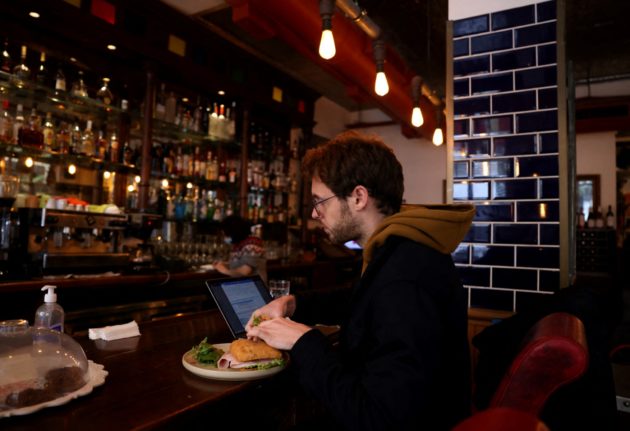SOS Homophobie (SOS Homophobia) said in a report that it received just over 1,500 reports of homophobic or other discriminatory behaviour in 2022 via its website and hotline – around the same number as the previous year.
But there was a 28-percent increase in reports of physical attacks, to 184, or roughly one every two days.
“Despite developments in the law and in people’s attitudes, today LGBT people still can’t live freely the way they are,” SOS Homophobie chief Joel Deumier told AFP.
In its report, the group said violent acts against gay and trans people included “ambushes set up using dating apps” and often had “superficial or non-existent motives”.
Among the reports they received were a knife attack on a male couple in the metro, two women finding their car had been repeatedly spat on, a young man battered by five attackers and another told by his neighbour that “your kind doesn’t deserve to live”.
Reports of discrimination included estate agents refusing to sell or rent to LGBTQ couples or families, and public spaces like shops and libraries refusing entry to non-binary or trans individuals.
SOS Homophobie highlighted reports of transphobic incidents, which it said had increased by 26 percent last year, to 227.
Schools especially “often refuse any kind of administrative changes” to pupils’ genders, the association complained.
SOS Homophobie urged the government to launch a “national awareness campaign”, dedicate more resources to investigating homophobic and transphobic crimes, and improve training for police — some of whom still refuse to accept such complaints.



 Please whitelist us to continue reading.
Please whitelist us to continue reading.
Member comments